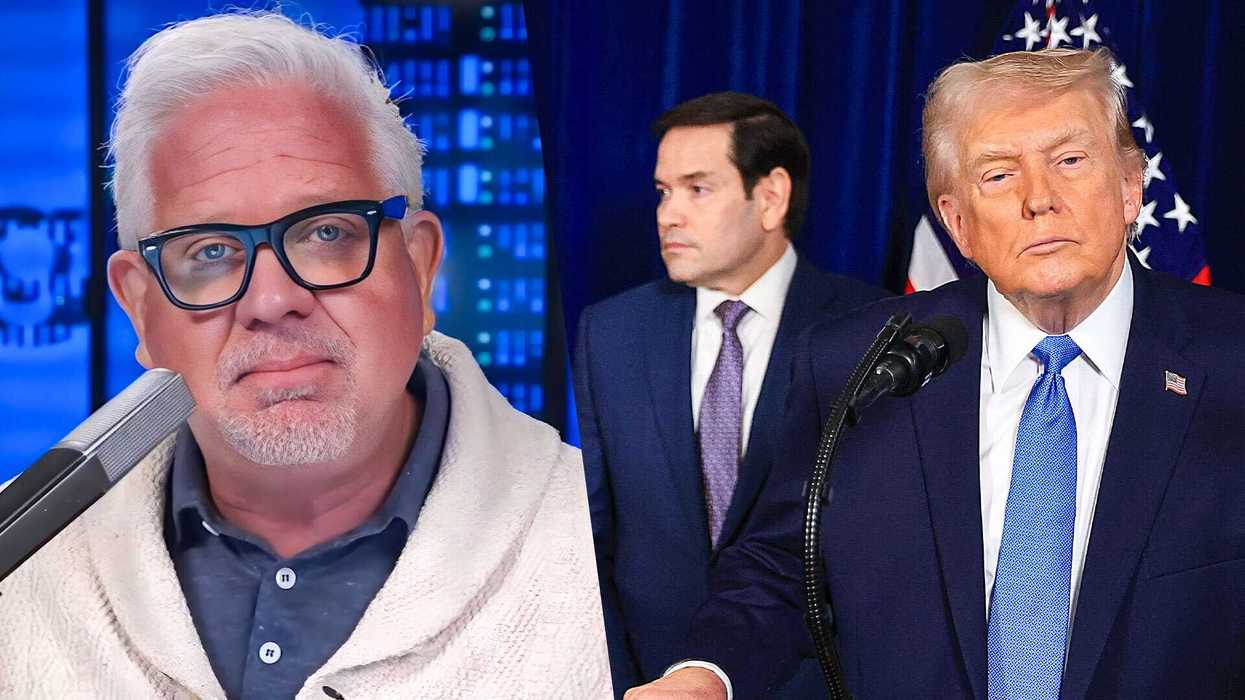
© 2026 Blaze Media LLC. All rights reserved.
Could Stephen Lerner’s Mortgage Strike Plan to Bring Down US Economy Actually Work? (With Bonus Stossel Clip!)
March 25, 2011
A primer to the strategic default movement
About a week ago, big labor radical Stephen Lerner called upon ordinary Americans to default, en masse, on their loans: "If we organized homeowners in mass to do a mortgage strike....it would literally cause a new financial crisis for the banks." What he then advocated was a campaign of deliberate loan default that he hopes will bring the banks to the "edge of insolvency."
His ideas, first revealed here on The Blaze, may seem far-fetched to some, but there is in fact an entire movement devoted to helping Americans do precisely what Lerner advocates: default strategically on their loans--and specifically, their troubled mortgages. The strategic default movement, which has been building up since the housing bubble burst, causing the market to crash in 2008, may not be motivated by Lerner's big labor politics, but it could nonetheless have economic consequences that Lerner would welcome.
"There are actually extraordinary things we could do right now to start to destabilize the folks that are in power and start to rebuild a movement," Lerner said last week.
Strategic default involves a borrower, or homeowner in this case, deciding to cease payments on his mortgage, even though he may be able to afford the payments. For whatever reason, the homeowner decides that his home has become a bad investment, and he wants to rid himself of the investment. A foreclosure process then ensues which can last anywhere from months to years. During this time, the homeowner is no longer obligated to pay the monthly mortgage payment, but can continue residing in the foreclosed property.
According to a December 2010 survey by Harris Interactive, nearly half of all Americans, 48%, said they would consider defaulting on their home loans if they owed more money than their houses are worth. That number was up 7% from a survey conducted six months earlier, which showed that 41% of Americans would consider walking away from their mortgages.
"It’s a good business decision," Lerner said.
This is also the view of businessman Jon Maddux, the CEO of YouWalkAway.com, a California-based company that helps homeowners walk away from their mortgages. In a blog post, Maddux explains that "Strategic default is when a homeowner takes decisive action to stop the bleeding in a bad investment. It’s what smart investors do all the time when they are faced with losing money."
The company's website asks: "What if you could live payment free for up to 8 months or more and walk away without owing a penny?"
A sign of the times: YouWalkAway.com's 5000-person strong clientele has been growing in recent months. According to a Wall Street Journal report, Maddux says that the company serves between 200-250 clients a month. That's an 8% spike from 2010, and 50% spike since 2009. After circling through Maddux's offices, clients shed an average of $250,000 in debt. Maddux says that a high proportion of his clientele--about a quarter--are high net-worth, and high profile individuals.
Here's a screen shot of the website:
"We have our share of celebrities and professional athletes with million-dollar-plus homes that can't fathom keeping this underwater home," according to Maddux.
On Fox News tonight at 10pm ET, John Stossel will interview YouWalkAway.com's founder, Chad Ruyle, about the ethical questions surrounding strategic default: is it true, as Ruyle says in the clip below, that homeowners do not have a moral obligation to pay their mortgage?
Maddux tells me that strategic defaults are "not doing anything illegal and it's not doing anything that someone hasn't already agreed to." In other words, when banks issued the mortgage paperwork, they assumed the risk of default.
Maddux explains another wrinkle in the situation: many homeowners opt to strategically default as a way to renegotiate their loans. When these homeowners call the bank, hoping to renegotiate, often the "lender won't talk to them unless their delinquent...giving people no option, except default."
Henry Blodget, the editor of the news site Business Insider, tells me that "If banks won't negotiate, then the homeowners should feel okay about walking away."
Apart from the moral issues surrounding strategic default, there are also the economic ones. What would happen if the defaults doubled, as Lerner wanted them to: would the banks in fact become insolvent? Would instability rein in the U.S. economy?
Blodget, who has a background in corporate finance, thinks it's "hard to say."
"If millions of homeowners suddenly 'strategically defaulted,'" Blodget explains, "the banks would be forced to immediately take huge write-downs on their mortgages."
But "it's very much bank-by-bank." Depending on the bank's capital cushion, mass defaults could "force some banks to raise additional capital to cover the losses. So it seems reasonable to suggest that mass strategic defaults might put some banks on the brink of insolvency." Over at Business Insider, Blodget did analysis of The Blaze's exclusive Lerner audio.
Maddux, who has also heard most of the Lerner audio, tells me frankly that if defaults double, "it would definitely be detrimental to our economy."
"If everybody walked away [from their mortgages], it would be really bad." There would be "chaos and a mess--economically and for the housing market," Maddux tells me.
And that's precisely what Lerner wants.
According to a report from last month, delinquent mortgages--those in default--and mortgages in the foreclosure process account for about 13% of all home loans. While the rate of default (8.22%) hit a two year low, the number of foreclosures making their way through the system is at a record high of 4.63%. Despite these mixed signals, economists are hopeful that these numbers are a sign that the market is in tepid recovery. Let's hope the economists' optimism is well-founded, and that the market continues it's upward slump, without the likes of Stephen Lerner interfering.
Want to leave a tip?
We answer to you. Help keep our content free of advertisers and big tech censorship by leaving a tip today.
Want to join the conversation?
Already a subscriber?
more stories
Sign up for the Blaze newsletter
By signing up, you agree to our Privacy Policy and Terms of Use, and agree to receive content that may sometimes include advertisements. You may opt out at any time.
Related Content
© 2026 Blaze Media LLC. All rights reserved.
Get the stories that matter most delivered directly to your inbox.
By signing up, you agree to our Privacy Policy and Terms of Use, and agree to receive content that may sometimes include advertisements. You may opt out at any time.







